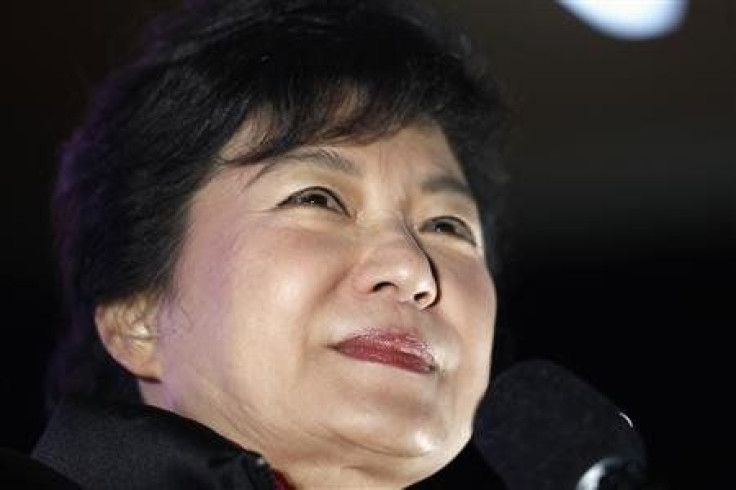Park Geun-Hye Takes Charge As South Korea’s First Woman President

Park Geun-hye of the conservative Saenuri party became South Korea’s first woman president Monday, vowing to secure the nation against the threat of an increasingly hostile North Korea, while simultaneously signaling a new drive for greater engagement with Pyongyang.
“North Korea’s recent nuclear test is a challenge to the survival and future of the Korean people, and there should be no mistake that the biggest victim will be none other than North Korea itself,” Park said in her inauguration speech in Seoul.
North Korea carried out its third nuclear test Feb. 12, which was unanimously condemned by the U.N. Security Council. In December, North Korea successfully used a three-stage rocket to launch a satellite into orbit, following which the U.N. tightened the already existing sanctions on Pyongyang.
“There is no doubt that we are faced today with an extremely serious security environment but neither can we afford to remain where we are,” she said, adding: “Through a trust-building process on the Korean Peninsula, I intend to lay the groundwork for an era of harmonious unification where all Koreans can lead more prosperous and freer lives and where their dreams can come true.”
“I will move forward step-by-step on the basis of credible deterrence to build trust between the South and the North,” she said.
Sixty-one-year-old Park, the daughter of late dictator Park Chung-hee, from South Korea’s authoritarian era, emerged winner in a tight race in December that pitted her against Moon Jae-in, the 59-year-old liberal candidate of the Democratic United Party and a former human rights lawyer.
Though both candidates had promised to pursue talks and step up aid to North Korea during their election campaigns, Pyongyang criticized Park over her North Korea policy plans but did not make any comments on Moon.
Park assumes offices at a time when the nation is facing numerous challenges, including strained ties with Pyongyang, a slowing economy, an aging population and rising welfare expenditure.
The president promised economic revival propelled by a “creative economy and economic democratization.”
“By rooting out various unfair practices and rectifying the misguided habits of the past which have frustrated small business owners and small and medium-sized enterprises, we will provide active support to ensure that everyone can live up to their fullest potential, regardless of where they work or what they do for a living,” she said.
Park campaigned as a fiscal conservative advocating tax cuts for business to boost investment and jobs, while vowing to increase welfare spending from its current level of 7.6 percent of gross domestic product.
Her campaign pledge was to fund the increased spending by cutting wasteful expenditure and expanding the tax base, rather than through tax increases.
“I will endeavor to shed popular distrust of government and strive to elevate the capital of trust,” she said.
© Copyright IBTimes 2024. All rights reserved.












